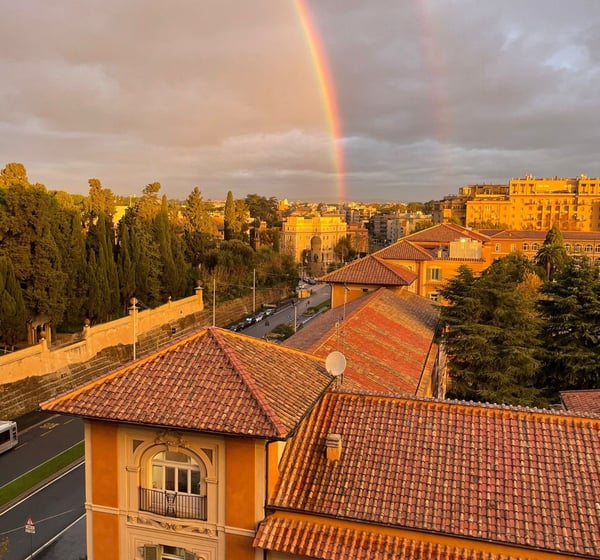December 2024
How I manage my money
Firsr part - Introduction


The relationship we have with money is something deeply personal and unique. For some, it's a necessary evil; for others, just a resource. I believe that, like everything else, it depends on how we manage it and the balance we find in its use. From a young age, I’ve tried to build a healthy relationship with money not to hoard it, but to use it as a tool to achieve my goals.
In this section, you won’t find financial advice, but rather stories about how I’ve learned to manage my money over time, from the small challenges of high school to the bigger lessons I encountered during university. It’s not a guidebook, but a collection of experiences that helped me grow—and maybe, they’ll inspire you too.
I am not a financial advisor or an expert in the field: I study it, I'm passionate about it, I read about it, but I don't consider myself a guru mainly because I lack the credentials. For this reason, I won’t give advice, but instead, I’ll simply share my personal experience. With that said, now that I’ve disclaimed all responsibility, let’s get to the point.
Having a healthy relationship with money and learning how to manage it is fundamental for everyone. It’s true money doesn’t buy happiness (especially since happiness is such a big concept that it can’t be tied to one thing or something material), but it can provide greater freedom, fewer worries, and indirectly contribute to a more serene life. In short, it can be a bonus to the happiness we build through other values. For me, this relationship is a foundation for building anything meaningful in my life.
Since high school, I’ve always tried to save money to reach small goals.
For example, I saved up to build my first gaming PC (yes, I had a nerdy past, which I’ll talk about in another article), to buy a 3D printer, and even to get my first phone. These small milestones became increasingly meaningful over time. However, it was in university that I truly understood the value of money: when you receive money from your family, you realize that you have to live off it, support yourself, and cover all your needs. Things that once seemed effortless now require planning.
It all started with practical needs. At university, far from home, I felt the need to monitor my expenses. I wanted to know where my money was going: how much I spent on groceries, eating out, or social activities like aperitifs. Keeping track of my spending helped me stay in control and make more informed decisions.
My journey in money management started quite simply: I used to collect receipts and jot them down in a notebook (all this I think I got it from my mother, because I saw her on the living room table to mark the receipts on a huge agenda since I was little). This method, although basic, gave me a rough idea of my expenses, but it lacked structure and clarity. Over time, I realized that to have better control over my finances, I needed to take it a step further.
That’s when I started using a Notion spreadsheet. Each day, I logged my expenses, organizing them into categories. By the end of each month, I had a complete summary: how much I had spent, how much I had saved, and which areas consumed most of my budget. It was a simple yet effective way to visualize my relationship with money and identify areas where I could improve.
One of the most important findings I have made is that there is often a huge gap between our perception and reality of our finances. Sometimes we think we can’t afford something, when it would be absolutely sustainable. Other times, we spend without realizing that we are going beyond our means. This error stems from a bias that concerns the perception of our money. Being aware of this has helped me a lot to better organize my finances during these years.
Over time, keeping track of my expenses and income has become much more than a simple financial management exercise: it has become a way to get to know me better and to set my priorities. I’ve learned that saving doesn’t mean cutting everything, but balancing what we want today and what we want to build for the future.
I’m not an expert, but what I can say is that having a conscious relationship with money helps you live with less anxiety and more freedom. Every little choice, from setting a goal to indulging in the pleasure, helps make the journey more rewarding.
In the end, it’s not so much money itself but how we use it and what it allows us to do that makes a difference.
During university, alongside selling shoes, I started tutoring two high school students in math and physics. This provided me with some extra income, which, combined with my family’s support, gave me more independence in managing my expenses. It was during this time that I began tracking not only my expenses but also my monthly earnings.
Keeping a record of my finances motivated me to set small savings goals. I realized that in some months, by keeping my spending under control, I could afford little indulgences without exceeding my budget.
You might ask, “"Why not save more than you set out to do in that month?” For me, reaching the goal I had set was enough. I don’t believe in overdoing anything not even saving. Maintaining a balanced approach has always been key. Treating myself to something I wanted, while staying within my financial limits, made me happy and encouraged me to stick to this method.
How I manage my money
First part - Introduction
FINANCE
Renato Francesco Mercuri
4 min read